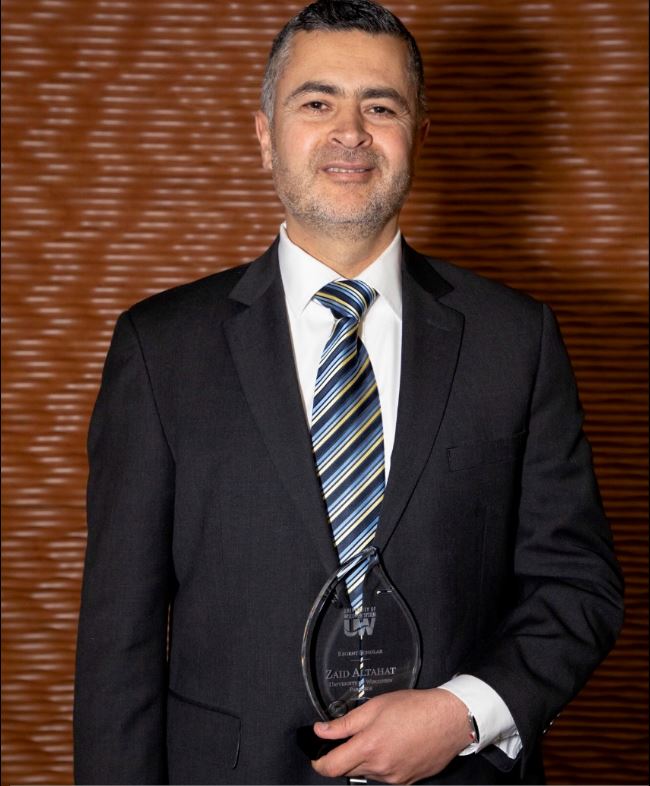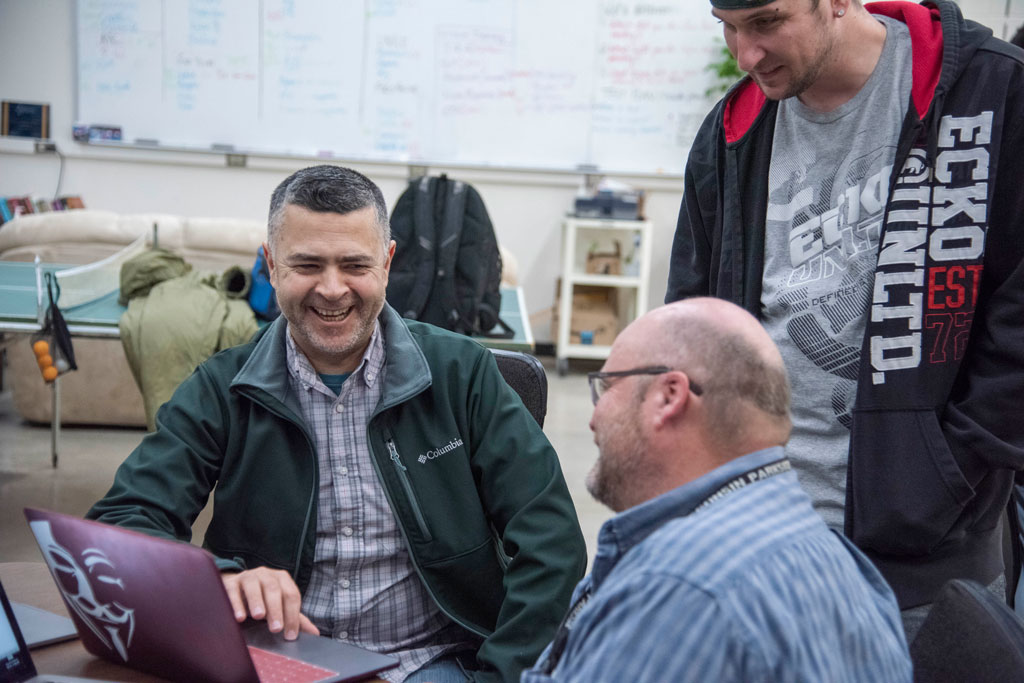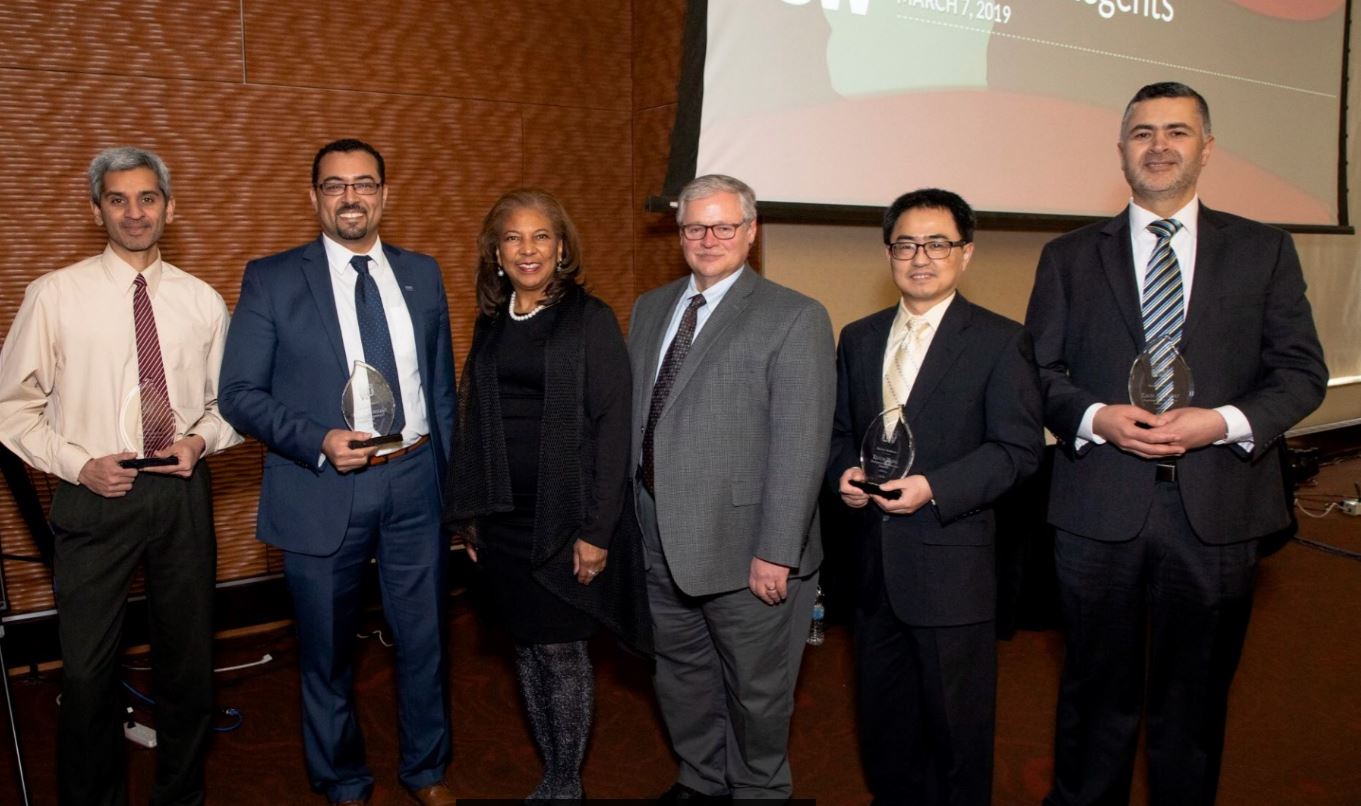UW-Parkside Professor Zaid Altahat Earns UW System Regent Scholar Grant
Dr. Zaid Altahat, assistant professor of computer science at the University of Wisconsin-Parkside, has been awarded a 2019 UW System Regent Scholar Grant. Dr. Altahat, in partnership with his computer science colleague at UW-Stout Dr. Saleh Alnaeli, received the $50,000 grant for a computer science and security research project titled “Empirically Examining the Source Code Security and Vulnerabilities in General Purpose Software Systems.” The research will help software instructors design and plan training courses and curriculum that provide secure coding practices for undergraduate students and software developers.
Dr. Altahat’s portion of the project focused on embedded software, software engineering, mobile and web apps, and agile methodologies. In addition to his faculty position, Dr. Altahat is director of the UW-Parkside App Factory specializing in mobile-app development for internal and external clients. Dr. Alnaeli emphasized software security and source-code vulnerabilities.

UW-Parkside Provost and Vice Chancellor for Academic and Student Affairs Dr. Rob Ducoffe noted the importance of data-security research in a world where technology and consequent threats are so prevalent. “Cyber security leads global and national news reports almost every day,” Ducoffe said. “The work of Dr. Altahat and Dr. Alnaeli is key to the future development of secure technology. The grant is also important recognition and support for the opportunities Professor Altahat provides UW-Parkside students. Undergraduate research prepares students to be relevant contributors on day one of their professional careers. The grant allows more students to participate in the research experience.”
Dr. Altahat says he is motivated by a desire to provide meaningful real-world experience for students through undergraduate research that translates to the current job market. “Students learn what are the things to look for, how to conduct research, how to do analysis, gather results, write reports, publish reports, and give presentations,” he said. “It’s a great set of skills that the students learn and the feedback I get from the students is tremendous.”
 The Regent Scholar program provides prestigious, one-time grants to individual faculty or campus programs that undertake undergraduate research projects having the potential to foster innovation, entrepreneurship, and talent development. The program, which was introduced in 2014, is designed to stimulate faculty-student collaborative research.
The Regent Scholar program provides prestigious, one-time grants to individual faculty or campus programs that undertake undergraduate research projects having the potential to foster innovation, entrepreneurship, and talent development. The program, which was introduced in 2014, is designed to stimulate faculty-student collaborative research.
“Our vision for the Regent Scholar program is to encourage the continued growth of a culture of innovation and entrepreneurship across the UW System,” said Dr. Eve Hall, a UW System Regent and chair of the Board’s Research, Economic Development and Innovation (REDI) committee, which administers the Regent Scholar grants.
UW System President Ray Cross said UW System faculty and students are engaging in significant undergraduate research projects each day on every campus. “The Regent Scholar program recognizes the importance of discovering new pathways to commercialization and highlights the power of partnership with business and industry, which is key to Wisconsin’s economic vitality,” Cross said.
In addition to Dr. Altahat and Dr. Alnaeli, the UW Board of Regents recognized Dr. Yijun Tang, associate professor of analytical chemistry at UW-Oshkosh (“Enzyme-Free Glucose Sensors Composed of Molecularly Imprinted Polymers and Nanosized Metal Particles”) and Dr. Gokul Gopalakrishnan, assistant professor of engineering physics at UW-Platteville (“A Rapid Customizable Technique for Pathogen Separation and Biomolecular Detection”).
